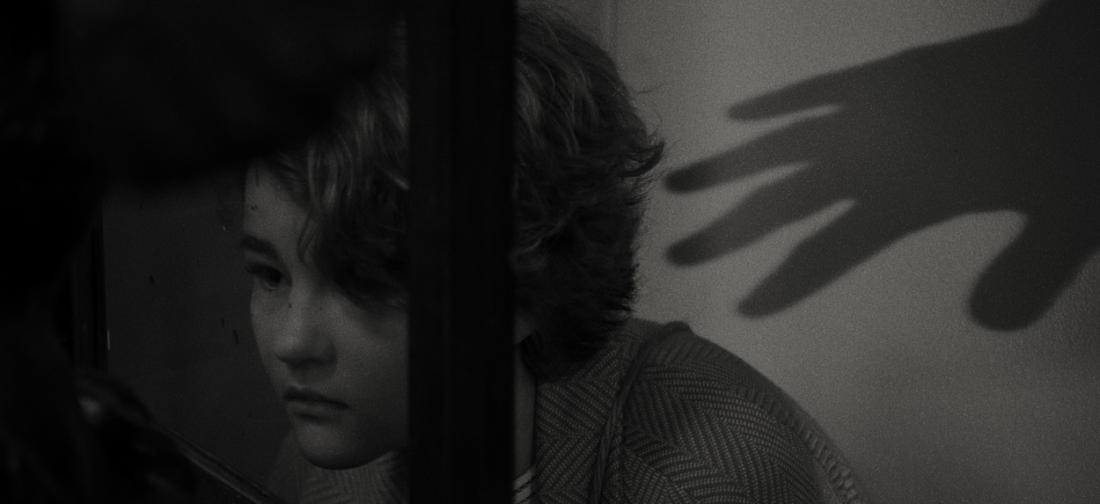By Salim Garami

What's good? It's quite frankly a hell of a shame how little attention and love Todd Haynes' adaptation of young fiction book Wonderstruck has received during this awards season, after its Cannes premiere elicited high hopes about its Oscar chances. Ignoring the unfortunate lack of marketing or campaigning from Amazon Studios (opting instead to push Last Flag Flying and Wonder Wheel -- a decision which didn't do them much good), Wonderstruck's main crime doesn't seem to be any true flaw in its material but the fact that it's such a quiet and small movie. Even its champions give it muted praise rather than rapturous acclaim...
Indeed I nearly made my FYC post on a movie that has NO shot or intentions at an Oscar nomination to begin with, until I remembered how I saw and liked Wonderstruck. And exactly how it earns its place in my memory at the end of the year.

You see, while the dueling escape to Manhattan narrative conceit between a young deaf girl in 1927 named Rose who idolizes the stage actress Lillian Mayhew (and, duh, because she's played by Julianne Moore) and the 1977 orphan Ben who wants to find his father sound ambitious enough, the way that they come together especially under Haynes' direction is understated. It's done with satisfaction and warmth rather than a heavy hand so it's understandable why people were not over the moon for the movie.
And that's where cinematographer Edward Lachman (in his fourth overall collaboration with Haynes) and composer of Carter Burwell (in his third) come in, bringing two worlds to life by the history behind their settings and turning run-of-the-mill children's tales into heightened fairy tales by the much beloved language of cinema. It's reminiscent to me of the similar work Martin Scorsese did in the big-hearted Hugo (itself now being underappreciated as well).
First, we have Lachman's dueling chore of providing black-and-white cinematography with just the right amount of softness to Rose's story, told in a silent movie form to inhabit both her soundless point of view and replicate the cinematic aesthetic of the time period, thereby informing more of its wonder at the arts that it so happily inhabits. It doesn't entirely replicate the aesthetic of the time period, since the frame rate, the anamorphic aspect ratio, and Lachman's composition and angles insist a more modern sensibility, but it's frankly much more interesting to look at that most black-and-white films these days for that reason (especially since, y'know, Karl Freund and Gregg Toland aren't around anymore and any attempt to imitate them would feel hella labored). Still, Lachman's angles add so much to the bustle of New York as presented through the eyes of a little girl, the proscenium shape and purpose of the stage, and especially the trapped and little state of Rose's mind when she is suffering badgering from people she feels she should be able to trust.

The modernist bent also help ease in the continuous changes to Ben's story as it paints 1976 New York with a heavy New Hollywood sense. And the way that Lachman gently mutes the colors enough to bring out the urban browns that add warmth to the grit, like a childish romantic nostalgia of an underdeveloped area. It's essentially similar to what I'd imagine Steven Spielberg trying to make a William Friedkin picture, palatable to any age but recognizable in what sort of environment Lachman and Haynes wanted to replicate. There's a reason when it turns to cool night blues and the notorious 1977 blackout enters the story, Wonderstruck doesn't give its characters any sense of danger and it's instead a moment of positive energy to its characters.
Burwell meanwhile, who is shamefully getting more attention for Three Billboards Outside Ebbing, Missouri, comes into the frame by providing the only sonic language Rose's story gets to have, establishing a lovely wonderstruck (shut up) leitmotif for her that eventually gets to poke back in at the moment where the two stories converge in the third act, interrupting a wild and funky score to fit right into the 1970s and the wonderfully diverse Upper Manhattan that Haynes fills the screen with.
I don't want to spoil the moment near the end where Burwell and Lachman's work comes at its most magical. Too few people have come around to seeing Wonderstruck during its frustratingly small release anyway, so I like to think this is just as much a "For Your Consideration" a potential audience to catch the movie once more as it is a "For Your Considertion" for the awards voters to jumpstart their memory. Wonderstruck is maybe one of the loveliest films of 2017 and that lovely stylistic control is all in service to exposing Haynes' heart to his young protagonists. That's more than be said for most of the other movies of 2017 I can think of that look good but in a wholly robotic and shallow way.

Other Crafts Honored
Best Production Design 2017 | The Beguiled's Costume Design | Killing of a Sacred Deer Cinematography | Baby Driver's Editing